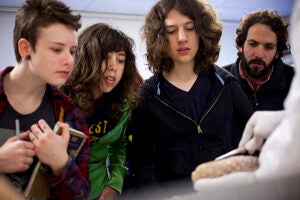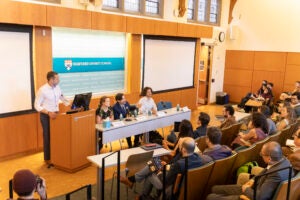Tag: Neuroscience
-
Nation & World
Hunters, herders, companions: Breeding dogs has reordered their brains
Erin Hecht, who joined the faculty in January, has published her first paper on our canine comrades in the Journal of Neuroscience, finding that different breeds have different brain organizations owing to human cultivation of specific traits.
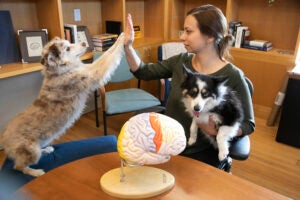
-
Nation & World
So you think he can dance?
Snowball the dancing cockatoo is the subject of a study by Radcliffe fellow and Tufts neuroscientist Ani Patel, who suggests the bird’s ability to move in time to music is connected to the way humans groove to a beat.
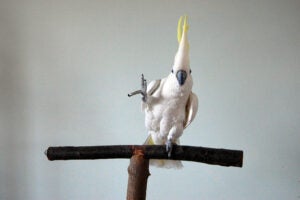
-
Nation & World
Forward thinking
Research led by scientists at Harvard and the Broad Institute has optimized the process of making human brain “organoids” — miniature 3D organ models — so they consistently follow growth patterns observed in the developing human brain.
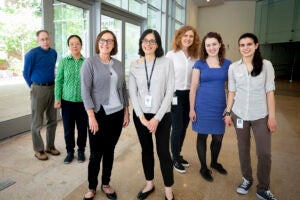
-
Nation & World
A new vision for neuroscience
For decades scientists have been searching for a way to watch a live broadcast of neurons firing in real time. Now, a Harvard researcher has done it with mice.
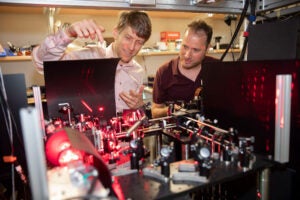
-
Nation & World
Giving to the next generation
Professor Catherine Dulac used the money from her endowed position to fund the studies of an overloaded neuroscience undergrad.

-
Nation & World
Easy on the eyes
New computer program uses artificial intelligence to determine what visual neurons like to see. The approach could shed light on learning disabilities, autism spectrum disorders, and other neurologic conditions.

-
Nation & World
Seeing brain activity in ‘almost real time’
Researchers from Brigham and Women’s Hospital, King’s College London, and other institutions have developed a technique for measuring brain activity that’s 60 times faster than traditional fMRI.
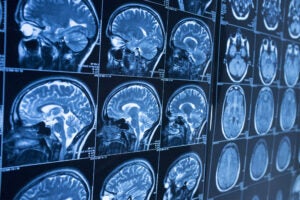
-
Nation & World
Sensors go undercover to outsmart the brain
Harvard scientists have created brain implants so similar to neurons that they actually encourage tissue regeneration in animal models. They may one day be used to help treat neurological diseases, brain damage, and even mental illness.
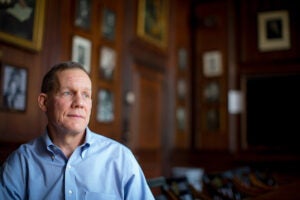
-
Nation & World
Sensory disorders hold key to neurologic treatments
The Bertarelli Foundation is redoubling its investment in Harvard Medical School’s research on sensory disorders.
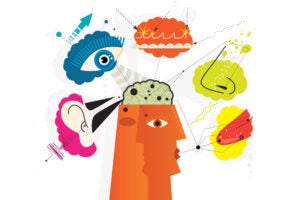
-
Nation & World
Harvard’s immersion in neuroscience
In a Q&A session, Harvard Provost Alan Garber talks about the recent “Faculty Symposium: Insights in Neuroscience,” hosted by his office and the Life Sciences Steering Group, about science broadly at Harvard, and the growing interdependence among all scientific disciplines.
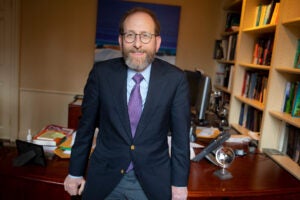
-
Nation & World
Professor Paola Arlotta awarded George Ledlie Prize
Developmental neurobiologist Paola Arlotta has been awarded the George Ledlie Prize by the President and Fellows of Harvard College.

-
Nation & World
Sanes receives Gruber Neuroscience Prize
Joshua R. Sanes, the Jeff C. Tarr Professor of Molecular and Cellular Biology and founding director of the Center for Brain Science, has been named recipient of the 2017 Gruber Neuroscience Prize.
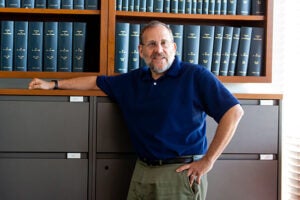
-
Nation & World
Neurons reprogrammed in animals
Harvard Stem Cell Institute researchers have shown that the networks of communication among reprogrammed neurons and their neighbors in the brains of living animals can also be changed, or “rewired.”
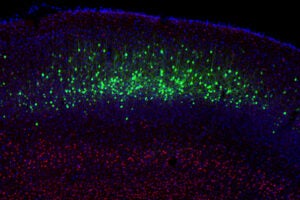
-
Nation & World
Inconsistent? Good
Though variability is often portrayed as a flaw to be overcome, Harvard researchers now say that, in motor function, it is a key feature of the nervous system that helps promote better or more successful ways to perform a particular action.
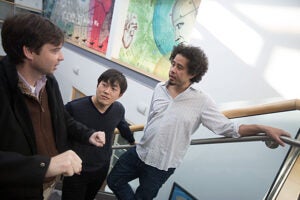
-
Nation & World
Advancing science and technology
The National Science Foundation is awarding grants to create three new science and technology centers this year, with two of them based in Cambridge. The two multi-institutional grants total $45 million over five years.

-
Nation & World
Hyman to lead Society for Neuroscience
Steven E. Hyman, former provost and Distinguished Service Professor of Stem Cell and Regenerative Biology at Harvard, has been named president-elect of the Society for Neuroscience, the world’s largest organization of brain and nervous system scientists and physicians.
-
Nation & World
The motivation to move
Using an unusual decision-making study, Harvard researchers exploring the question of motivation found that rats will perform a task faster or slower depending on the size of the benefit they receive, suggesting they maintain a long-term estimate of whether it’s worthwhile for them to invest the energy.
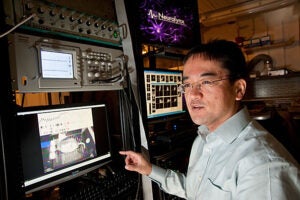
-
Nation & World
Listening for clues
Baby songbirds learn to sing by imitation, just as human babies do. So researchers at Harvard and Utrecht University, in the Netherlands, have been studying the brains of zebra finches — red-beaked, white-breasted songbirds — for clues to how young birds and human infants learn vocalization on a neuronal level.
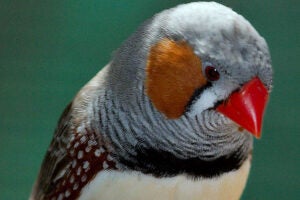
-
Nation & World
Driving toward the future
In four years at Harvard College, hard work and determination have propelled Patrick Staropoli to a 3.94 grade point average and earned him a place in Phi Beta Kappa. But when folks in Staropoli’s home state of Florida talk about his drive, they’re usually referring to the fact that he races super late-model series stock…
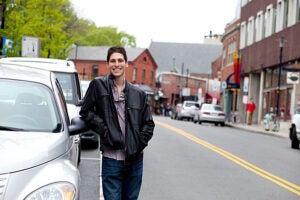
-
Nation & World
Circumstances that color our perception
Dozens of Harvard faculty and students gathered at Emerson Hall on Feb. 23 to ponder the nature of perception with Ned Block, the Silver Professor of Philosophy, Psychology and Neural Science at New York University (NYU) and one of the country’s leading thinkers on consciousness. Block’s lecture, “How Empirical Facts about Attention Transform Traditional Philosophical…
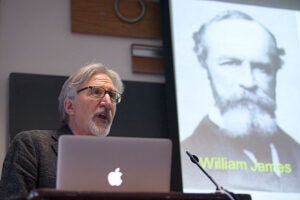
-
Nation & World
Deciding to go left or right
Researchers in a Harvard lab have developed a device, dubbed LADY GAGA, that allows them for the first time to precisely control airborne scents. They have used the device in their work unraveling how animals make navigational decisions based on their environment.
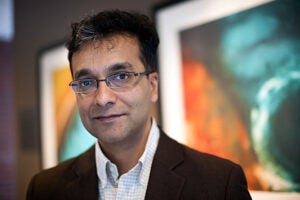
-
Nation & World
Exploring Happiness: From Aristotle to Brain Science
Happiness — how do we get it, how do we keep it, and where does it come from? Distinguished visiting fellow Sissela Bok plumbs the theories of philosophers, neuroscientists, and other specialists, and synthesizes her research into a comprehensive overview of the subject.
-
Nation & World
Animal scents
A Harvard study of how mice respond to scent cues from potential mates, competitors, and nearby predators has laid a foundation for further investigations that may eventually lead to a greater understanding of social recognition in the animal brain, with implications for a host of human disorders ranging from autism to post-traumatic stress disorder.
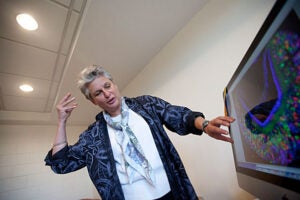
-
Nation & World
Brain navigation
Hanspeter Pfister, an expert in high-performance computing and visualization, is part of an interdisciplinary team collaborating on the Connectome Project at the Center for Brain Science. The project aims to create a wiring diagram of all the neurons in the brain.
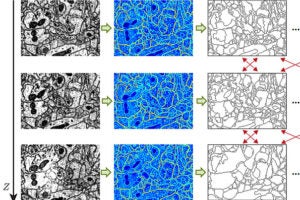
-
Nation & World
Learning to love the irrational mind
Just how much should we allow “human nature” to guide our politics — and our everyday decision making? Columnist David Brooks and a trio of Harvard analysts debated new findings on the unconscious mind during a panel discussion.
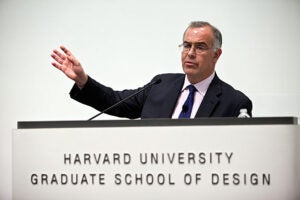
-
Nation & World
Biology researcher’s on a roll
Florian Engert, a new professor of molecular and cellular biology in Harvard’s Bio Labs, works and plays hard.
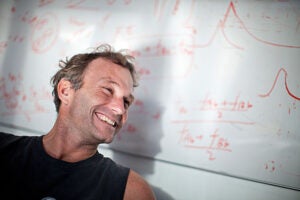
-
Nation & World
Early marijuana use a bigger problem
Researchers at Harvard-affiliated McLean Hospital have shown that those who start using marijuana at a young age are more impaired on tests of cognitive function than those who start smoking at a later age.
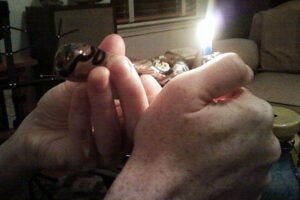
-
Nation & World
Anesthesia instructor named 2011 Miles and Eleanor Shore Fellow
Harvard Medical School Instructor in Anesthesia Wasim Malik has been awarded the Center for Integration of Medicine and Innovative Technology’s Miles and Eleanor Shore Fellowship for 2011.
-
Nation & World
Steven Pinker wins George A. Miller Prize in Cognitive Neuroscience
Steven Pinker, the Johnstone Family Professor of Psychology in the Department of Psychology, was named this year’s winner of the George A. Miller Prize in Cognitive Neuroscience, presented by the James S. McDonnell Foundation.
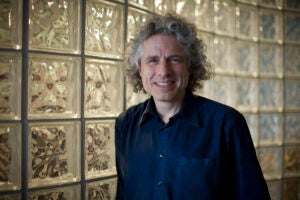
-
Nation & World
A ‘mind-blowing’ day
Vermont high school students explore the human brain, with help from Harvard scholars.
